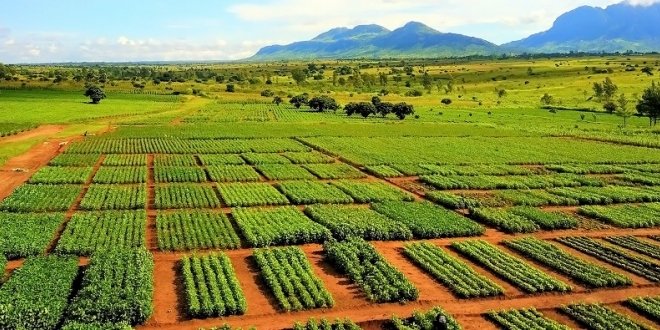Lilongwe, Malawi. The International Institute of Tropical Agriculture (IITA) and the International Maize and Wheat Improvement Center (CIMMYT) recently launched a project that aims to investigate the drivers and barriers to adoption of Conservation Agriculture (CA) in southern Africa and to develop strategies for achieving adoption and impact at scale.
The project, Understanding and Enhancing Adoption of Conservation Agriculture in Smallholder Farming Systems of Southern Africa (ACASA), will apply social and scaling science to understand the biophysical, socioeconomic, institutional, and policy drivers and barriers to the adoption of CA technologies and practices.
ACASA is supported by the Norwegian Agency for Development Cooperation (Norad) and will be implemented in Malawi, Zambia, and Zimbabwe in collaboration with the CA stakeholders and farmers in the region.
The project was officially launched virtually on 16 September 2020 by the Zambia Minister of Agriculture, the Hon. Michael Katambo. Hon Katambo noted it was a timely intervention as the livelihoods and food security of smallholder farmers in southern Africa are increasingly being threatened by climate change and variability that had led to a steady decline in the production of food staples and an increase in the number of food and nutrition insecure people over the last couple of years.
“It is now clear that current productivity and production levels cannot be expected to meet our requirements for food and nutrition security. Conservation Agriculture (CA) has a proven potential to increase and stabilize crop yields and to support sustainable and resilience production systems and rural livelihoods,” he said in a speech read on his behalf by Dr Moses Mwale, Director, Department of Agriculture at the Ministry.
CA, a farming system that promotes minimum soil disturbance, permanent soil cover, and diversification of plant species, can efficiently increase agricultural productivity while reducing land degradation and improving soil health for more productive, profitable, and sustainable farming.
Substantial on-farm experimental evidence has been generated on the agronomic and economic benefits of CA, first introduced in the 70s in south Africa. Consequently, a lot of investments have been made by the donor community and national governments to promote and scale CA technologies and practices among smallholder farmers in the region. Despite all these efforts, however, the adoption rate among smallholder farmers remains low.
“We should not let the low adoption of conservation agriculture discourage us. Let us use this opportunity to reflect and identify the missing link and come up with more sustainable solutions to the problem,” said the IITA Director for Southern Africa Dr David Chikoye, speaking at the launch.
“Although adoption of improved practices by most resource-poor farmers is primarily determined by the potential immediate benefits on crop yields, profits, risk, and livelihoods, there are a number of biophysical, socioeconomic, institutional, and policy factors that promote or hinder adoption of CA. The project, therefore, aims to identify the adoption drivers and barriers and develop pathways and strategies for inclusive scaling of CA practices,” added Dr Arega Alene, IITA Agricultural Economist based in Malawi, who leads the project at IITA.
Also speaking at the launch, Christian Thierfelder, Principal Cropping Systems Agronomist at CIMMYT, highlighted some of the bottlenecks for CA adoption noting they were linked more to socioeconomic and cultural factors rather than biophysical.
“CA is a viable and proven climate smart farming system. Therefore future research efforts should go towards understanding farmers’ decision-making and behavioral change as well as profitability,” he said.
Other key partners include Food and Agriculture Organization of the United Nations (FAO), African Conservation Tillage Network (ACTN) and Centre for Coordination of Agricultural Research and Development for Southern Africa (CCARDESA).
The project launch was attended by policymakers, donors, and members of the national and regional CA taskforces, national and international research institutions, universities, international development institutions, private seed companies, non-governmental organizations, and farmer organizations.
Media contact:
Katherine Lopez, Head of Communication -IITA, Email: k.lopez@cgiar.org
Genevieve Renard, Director of Communication – CIMMYT, Email: g.renard@cgiar.org
Project lead:
Arega Alene, IITA Agricultural Economist, Email: a.alene@cgiar.org
About IITA
The International Institute of Tropical Agriculture (IITA) is a not-for-profit institution that generates agricultural innovations to meet Africa’s most pressing challenges of hunger, malnutrition, poverty, and natural resource degradation. Working with various partners across sub-Saharan Africa, we improve livelihoods, enhance food and nutrition security, increase employment, and preserve natural resource integrity. IITA is a member of CGIAR, a global agriculture research partnership for a food-secure future.
About CIMMYT
The International Maize and What Improvement Center (CIMMYT) is the global leader in publicly-funded maize and wheat research and related farming systems. Headquartered near Mexico City, CIMMYT works with hundreds of partners throughout the developing world to sustainably increase the productivity of maize and wheat cropping systems, thus improving global food security and reducing poverty. CIMMYT is a member of the CGIAR System and leads the CGIAR programs on Maize and Wheat and the Excellence in Breeding Platform. The Center receives support from national governments, foundations, development banks and other public and private agencies. For more information visit www.cimmyt.org.

